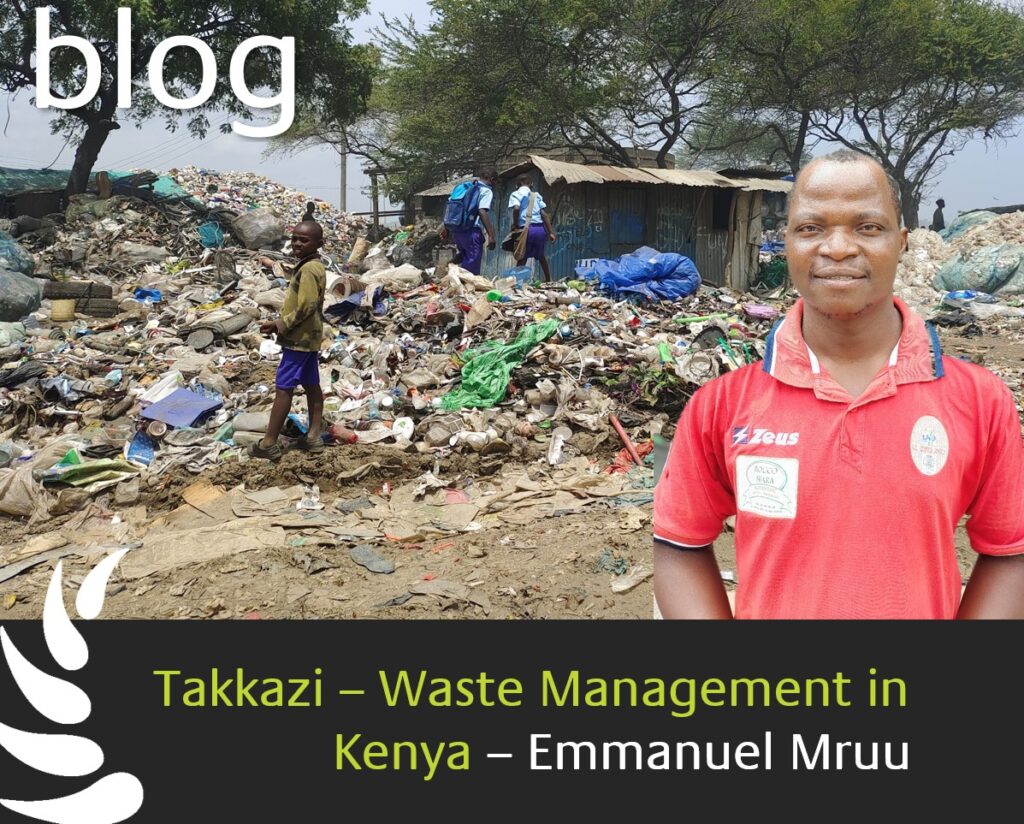Summary
Last February, paul and I, visited several kanthari graduates in Zimbabwe. In the same period, Chacko and Riya, our colleague catalysts, went to Tanzania, Kenya, Uganda, and Ruanda to meet kantharis there. What we saw and experienced was both shocking and encouraging. In the next few weeks, we will share blog posts that are a result of these journeys. Here is a chance to dive into African realities!
Today’s blog post is by Chacko Jacob.
“There is no such thing as ‘away’. When we throw anything away, it must go somewhere” – Annie Leonard
Waste Not, Want Not
‘Taka’ means waste and ‘kazi’ means jobs or employment in Swahili. Together it forms the name of and organisation that was started by Emmenual Mruu, 2015 kanthari graduate from Kenya.
We travelled on brightly painted bike taxis through dusty roads on our way to the Mwakirunge dumpsite. The signs of drought were all around us. Failed maize and other crops, bald coconut trees, dead trees with leafless branches… Our thoughts of drought were diverted when stench and smoke started to fill our lungs. Having never visited a dumpsite before, we did not expect it to be so full of life. Mwakirunge, the biggest dumpsite (60 hectares) officially allocated for Mombasa City’s waste is home to more than 500 people. Climbing up on one of the bigger mounds of trash yielded a ghastly view, squinting through the smoke we could barely make out where this sprawling abyss ended.
There was no end to the trucks filled with waste that kept coming to the dump. All the trucks seemed to have young men sitting on the roof of the cabin. As soon as the mixed trash – everything from polythene bags to meat waste – came crashing down onto the ground, people of all ages rummaged through this waste to find anything they could sell or use for themselves. Away from the trucks, you can see kids in their school uniforms sifting through the junk for something to play with. Constant multiple fires raged everywhere, releasing acrid smoke that engulfed the environment. Although we were finding it difficult to breathe, it seemed like a regular day for Emmanuel.

The objective of Takkazi is to protect the environment through recycling and generating employment in Mkapuni village, Kilifi County. Waste collectors at the dumpsite segregate different plastic waste and trucks are hired to bring them to the Takkazi workshop.
Takkazi has around 9 people from the community working as staff, most of them women. The high ratio of women working with Takkazi is not surprising. A common theme here seemed to be that many men don’t show interest in contributing to the family, and at the same time, there is a high incidence of single motherhood.
The workers segregate the plastic recyclables according to different densities and colours. They then break the waste down into smaller pieces with machetes and other tools so that the machine can break it down into even smaller pieces. This is now sent to a third party to convert it into consumer products. In the future Takkazi plans to get a pulveriser and an extruder, that will enable them to capture more of the value chain, thereby creating more jobs, and creating unique products from plastic waste such as drip irrigation kits that can help in drought-resistant agriculture.
Our mind often drifts back to the image of the dumpsite which is burned into our heads. We pat ourselves on the back when we throw our trash into a bin and think no further. Out of sight, out of mind. Landfills have existed for over 5000 thousand years. It’s time to move away from this dark legacy. And to do that, we need concentrated efforts from all sectors and more Emmanuels and Takkazis.



